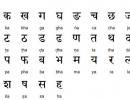Sea: about size, extent, depth. boundless, boundless. We are preparing for the exam according to I.S. Turgenev Additional rules for separating definitions
ABOUT azure kingdom! O kingdom of azure, light, youth and happiness! I saw you... in a dream.
There were several of us on a beautiful, dismantled boat. A white sail rose like a swan's chest under frisky pennants.
I didn't know who my comrades were; but I felt with all my being that they were as young, cheerful and happy as I am!
Yes, I did not notice them. All around I saw one boundless azure sea, all covered with small ripples of golden scales, and above my head the same boundless, the same azure sky - and across it, triumphant and as if laughing, the gentle sun rolled.
And between us, from time to time, laughter rose ringing and joyful, like the laughter of the gods!
Otherwise, words, poems full of marvelous beauty and inspirational power suddenly flew from someone’s lips ... It seemed that the sky itself sounded in response to them - and all around the sea trembled sympathetically ... And there again came blissful silence.
Slightly diving on soft waves, our fast boat floated. She did not move with the wind; it was ruled by our own beating hearts. Wherever we wanted, she rushed there, obediently, as if alive.
We came across islands, magical, translucent islands with tides of precious stones, yachts and emeralds. Intoxicating incense rushed from the rounded banks; one of these islands showered us with white roses and lilies of the valley; from others, rainbow-colored, long-winged birds suddenly rose up.
Birds circled above us, lilies of the valley and roses melted in the pearl foam that slid along the smooth sides of our boat.
Along with the flowers, with the birds came sweet, sweet sounds... Women's voices they seemed to be in them ... And everything around: the sky, the sea, the swaying of the sail in the sky, the murmur of the jet astern - everything spoke of love, of blissful love!
And the one that each of us loved - she was here ... invisibly and close. Another moment - and then her eyes will shine, her smile will bloom ... Her hand will take your hand - and will carry you away to an unfading paradise!
O blue kingdom! I saw you... in a dream.
USE Russian language. Task 16
Option number 1
1. Indicate the sentence(s) with a punctuation error.
1) I saw all around one boundless azure sky, all covered with small ripples of golden scales.
2) A blazing fire was extinguished with two buckets of water.
3) The fog descending into the valley covered the travelers.
4) He decided to make peace with his old neighbor, to destroy the traces of the quarrel, returning his property to him.
1) To the green meadow, calling, listening, I walk along the rustling foliage. And the cold month stands, not burning, like a green sickle in the blue.
2) In overcoming difficulties on life path, in solving the whole complex of tasks assigned to the poet great era, and Mayakovsky's poetic feat lies.
Her heart was beating strongly, (1) without knowing why, (2) but fear, (3) accompanying our pranks, (4) is their main charm.
4. Indicate the number (s) in the place of which (s) should be (s) a comma (s) in a separate definition.
The slightest sound, (1) originating in the silence of the gorge, (2) immediately intensified, (3) multiplied, (4) reflected from the grumbling rocks.
This smell (1) mixing (2) with salty sea winds (3) creates a special unique air (4) that has a healing effect on people.
Option number 2
1) Kashtanka scratched the door, leaned on it with her chest, opened it and immediately felt a strange smell.
2) Friendship, born under the shadow of five intersecting rings, will grow stronger year by year.
3) My grandmother tells fairy tales quietly, mysteriously bending down to my face, looking into my eyes with dilated pupils, as if pouring into my heart the strength that lifted me ...
4) Here she is [grandmother] quietly, thinking, swaying, looking around from under her arm, and her whole large body sways indecisively, her legs feel the road carefully.
2. Arrange punctuation marks, explain graphically.
1) The book is a crystalline, densely packed into pages our centuries-old experience, making the human race immortal on earth.
2) Suddenly, a falling leaf flew up under the wind, swaying, the lantern blinked.
3. Indicate the number (s), in the place of which (s) should (s) be a comma (s) in a separate definition.
We certainly gained height, (1) and it seemed strange, (2) that a green valley, (3) cut by a stream, (4) suddenly found itself under us.
The highway, (1) is gray near, (2) and deep blue in the distance, (3) went over the valley for some more time, (4) and then, (5) sharply taking it up, (6) began to go around the mountain.
5. Place punctuation marks: indicate all the numbers where commas should be in the sentence.
Long (1) slightly stooped (2) he slowly walked along the boardwalk and (3) waving his hooked predatory nose (4) threw sharp glances around him.
Option number 3
1. Indicate the sentence(s) with a punctuation error.
1) Having set some goal for myself, I do not scatter, but completely surrender to it and, having reached it, I go further, starting from it to a new tempting goal.
2) The words of the traditional oath were heard over the stadium, obliging all participants in the competition to honestly fight for victory in the name of the honor of the motherland, the glory of sports.
3) It was spring, and the wondrous smell of acacias that had not yet blossomed floated.
4) If you happened to hear from your acquaintances who visited Kamchatka about potatoes boiled in a stream, about a cup of tea scooped from the same stream, believe me, they are not exaggerating.
2. Arrange punctuation marks, explain graphically.
1) It is impossible to live in this world without delving into anyone's affairs.
2) For you, who covered the Motherland with bodies, looked into death, without lowering my eyes, I am learning to write with truthful, ardent words.
3. Indicate the number (s), in the place of which (s) should (s) be a comma (s) in a separate definition.
Thunder rumbled, (1) without ceasing, (2) lightning pierced the forest, (3) which would have been lit brighter, (4) than during the day, (5) if not for the streams of water, (6) pouring from the sky.
4. Indicate the number (s), in the place of which (s) should (s) be a comma (s) in a separate definition.
If the striving comes from a pure source, (1) it is still, (2) not having succeeded completely, (3) not having reached the goal, (4) it can bring great benefits.
5. Place punctuation marks: indicate all the numbers where commas should be in the sentence.
For an hour and a half (1) in-depth (2) into various observations (3), I did not pay attention to the crooked numbers (4) displayed on versts.
Option number 4
1. Indicate the sentence(s) with a punctuation error.
1) The silence, unbroken by either movement or sound, is especially striking.
2) Once sitting comfortably in a hut, I was surprised by an extraordinary spectacle that I had not yet seen.
3) I sat on a small island, in my hut, and, holding my breath, listened and watched.
4) A large flock of swans, returning from the far south to the north, began to circle over the bay.
2. Arrange punctuation marks, explain graphically.
1) Personal happiness outside of society is impossible, just as the life of a plant pulled out of the ground and thrown into barren sand is impossible.
2) In an effort to work for the benefit of the fatherland, Turgenev encouraged his contemporaries to do it.
3. Indicate the number (s), in the place of which (s) should (s) be a comma (s) in a separate definition.
On a hillock, (1) where the road tinned from rainwater led, (2) in the place of the forest, (3) among wet, (4) rotting wood chips and foliage, (5) among stumps and young growth, (6) bitter and fresh smelling, (7) the hut stood alone.
4. Indicate the number (s), in the place of which (s) should (s) be a comma (s) in a separate definition.
I don’t need a friend, (1) who agrees with me in everything, (2) changes views with me, (3) nods his head, (4) - for the shadow does the same thing better.
5. Place punctuation marks: indicate all the numbers where commas should be in the sentence.
Driving out of the house two days ago (1) I saw (2) fields darkened by rain (3) country roads with blurred ruts (4) full of rainwater.
Option number 5
1. Indicate the sentence(s) with a punctuation error.
1) Life passed without serving the broad interests and tasks of society has no justification.
2) Among the great inventions of the past, which finally singled out the human race from a humbled state, writing played the greatest role.
3) The older generation, handing over the country, peace and eternal ideas of justice on earth to the young generation, leaves her the only, most complete testament - a book.
4) Each time, picking up a book or magazine with a new story by Anatoly Aleksin, you experience a special feeling, rejoicing at the upcoming meeting with what is loved and dear.
2. Arrange punctuation marks, explain graphically.
1) I forgot about the gun and admired an unprecedented spectacle that reminded me of Pushkin's marvelous fairy tales.
2) Then, at some sign, rustling their wings, splashing water, the swans suddenly began to rise and, having gathered in a flock, stretched further north.
3. Indicate the number (s), in the place of which (s) should (s) be a comma (s) in a separate definition.
In the smoke, (1) stunned by continuous shots, (2) making him shudder every time, (3) Tushin ran from one gun to another, (4) now aiming, (5) now counting shells.
4. Indicate the number (s), in the place of which (s) should (s) be a comma (s) in a separate definition.
The fog began to shimmer in the hollows in waves, (1) dew, (2) shining, (3) played on the greenery, (4) transparent whitened clouds scattered along the blue vault.
5. Place punctuation marks: indicate all the numbers where commas should be in the sentence.
Having opened the window (1), I admired for a long time the dense spruce forest (2) rising immediately behind the river with mighty green bristles (3) and lining the mountains (4) blocking the road to the river.
Quest Source: Decision 4151. Unified State Examination 2017. Russian language. I.P. Tsybulko. 36 options.
Task 16. Place all punctuation marks: indicate the number (s) in the place of which (s) in the sentence should (s) be a comma (s).
Solution.
In this task, you need to put commas that highlight adverbial or participial phrases. Remember that the participial turnover is isolated in any case, the participle - only after the word being defined.
1. Let's find participial and adverbial phrases in the sentence.
I saw all around one boundless azure sea (1) all covered with small ripples of golden scales, and above my head the same boundless, the same azure sky - and across it (2) triumphant (3) and as if laughing (4) the gentle sun rolled.
2. Let's highlight the commas as participles:
(2) triumphant (3) and as if laughing (4)
The comma (3) is not needed, because the union "and" connects homogeneous gerunds that refer to the same word.
3. Let's determine the place of the participial turnover in relation to the word being defined.
sea (1-what?) all covered with small ripples of golden scales
The participial turnover is after the word being defined, a comma is needed.
Place all punctuation marks: indicate the number(s) that should be replaced by a comma(s) in the sentence.
I saw around one boundless azure sea (1) all covered with small ripples of golden scales, and above my head the same boundless, the same azure sky - and across it (2) triumphant (3) and as if laughing (4) the gentle sun rolled.
Explanation (see also Rule below).
Here is the correct spelling.
All around I saw one boundless azure sea, all covered with small ripples of golden scales, and above my head the same boundless, the same azure sky - and across it, triumphant and as if laughing, the gentle sun rolled.
The comma should come first: it is a comma before the expressed participial turnover by a separate definition, standing after the word being defined - "everything is covered with small ripples of golden scales."
Commas 2 and 4 highlight the adverbial phrases "triumphant and as if laughing."
Commas should be in places 1, 2 and 4.
Answer: 124
Rule: Task 17. Separation of definitions and circumstances
SEPARATION OF DEFINITIONS AND CIRCUMSTANCES
In task 16, students are required to be able to see isolated and non-isolated secondary members of a sentence and place commas in sentences with isolation. While all secondary members can be separated, only cases of separation / non-separation are included in this assignment definitions and circumstances. Thus, in the task there may be combinations of two types of separate members, and the placement of punctuation marks will depend on the features of the isolation of definitions (see paragraph 16.1) and circumstances (see paragraph 16.2)
16.1 Separate definitions. Basic concepts.
Separate definitions are definitions highlighted in meaning with the help of intonation and commas.
Hence, non-separated - not separated by commas and intonation.
Both isolated and non-isolated definitions are expressed most often * full forms of adjectives or participles. This agreed definitions, that is, it agrees in gender, number and case with its main word (= GS). Both isolated and non-isolated definitions designate a sign of an object (main word).
*note: cases of isolation of inconsistent definitions expressed by nouns are not considered in this section, since USE assignments do not include such examples.
If the definition has no dependent words, then it is single definition.
If from the definition you can ask a question to another word (words), that is, there are dependent words in the definition, it is called widespread. The most striking example of a common definition is participial turnover (=|PO|).
Example 1. Car (what?) (GS)"Ambulance" , | standing across the pavement|, managed to attract onlookers. The definition for the word "car" is expressed by the participle "standing"; from him we ask the question where? - to "across the pavement". Both the participle and the words dependent on it are included in the participle.
Example 2. In the same way, there are turns with an adjective: On glass (GS) what?, | Silver from hoarfrost | |, frost painted patterns. From the adjective "silver" the question is raised from what? to "frost", therefore, the adjective and the dependent word are defining turnover (=|ОО|).
Both the participle and the attributive turnover are one member of the sentence - the definition.
If there are several definitions, then they can be homogeneous if they refer to the same member of the sentence and there is (or can be inserted) a union between them AND or there are commas;
and heterogeneous, if they refer to different members of the sentence and there is no union or it is impossible to insert a union between them AND or no commas.
Here are examples of common homogeneous definitions expressed by participial phrases:
Example 3: boy , | sledding | And |played with sister|, turned out to be the son of our neighbor.
to the main word boy include two common definitions, each of which is expressed by a participial turnover: “rolled” + dependent words and “played” + dependent words
Scheme: HS + (PO and PO).
As you can see, a comma is not placed between two homogeneous software, according to the general rule of using commas with homogeneous members connected by a single union AND.
Example 4: In the following example, common definitions are not homogeneous, as they refer to different members of the sentence:
boy , | sledding |,(1) and |playing with his daughter| neighbour turned out to be father and son. The boy was riding, and the neighbor was playing.
Scheme: GS+PO , AND PO+GS . If you drop both turns, the sentence will not break: The boy and the neighbor turned out to be dad and son. The comma at number 1, therefore, is needed not for homogeneous definitions, but for the boundary of the first participial turnover.
16.1.1. BASIC RULE for separation of definitions
Let's go back to the example boy , | sledding |, And |playing with his daughter| neighbour turned out to be father and son.
Why is there a comma after the word “boy” before the PO (= participial phrase), but not before the word “neighbor”?
There are a number of rules governing this. Let's define the most important, practically the only rule that you need to know when doing task 16 when working with definitions.
The participial (determinative) turnover is always isolated if it is after the main word.
Here, according to this scheme, separation always occurs: GS + PO.
Example 5: Human, | not remembering the past | |, deprives itself of the future. Set apart participial phrase after the main word.
Example 6: Were heard sounds, | similar to the groans of trees | |. Scheme: GS+OO.
The definitive turn standing after after the main word was isolated
We interchange the positions of software and HS in the above sentences:
Example 7.|Not remembering the past|Human deprives himself of the future. There is no separation, since the scheme is different: PO + HS
Example 8. Were heard | similar to the groans of trees | | sounds. There is no separation. Scheme: OO+GS
Note: There is no such rule: participle turnover is separated by commas. It is absolutely necessary to comply with the conditions for its selection.
16.1.2. ADDITIONAL RULES for separation of definitions
The following rules can be called additional only in terms of the need for task 16. These rules are included in school course Russian language are required to study, but in assignments USE writing, regulated by these rules, did not meet.
1. The participial turnover must be isolated in the position before the word being defined, If determination has the meaning of cause or concession.
Example 9: | Exhausted by many days of drought |, Earth eagerly quenched their thirst. (Why did the earth quench its thirst? Because it was exhausted by the drought.) Scheme: PO + GS.
Example 10: |Decorated with glitter balls|, Christmas tree now and then attracted the attention of the kitten. Why did the tree attract attention? Because it was decorated. Scheme: software + HS.
Example 11: Raised in poverty and hunger, Paul was hostile to those who were, in his understanding, rich. Why did he treat it like that? Because I grew up in poverty.
Scheme: software + HS.
If there is no reason value, then turnover is not allocated as a general rule.
|Hung on a tree| birdhouse on the same day was occupied. (There is no reason, it cannot be argued that he was settled because he was hanged. There is no isolation, the basic rule applies.)
2. Separation always occurs if the definition refers to a personal pronoun.
Scheme: PO+(GS=LM). , where LM is a personal pronoun.
Example 12 |Engaged in conversation|, He listened.
Example 13 Excited and excited He ran into the room.
Example 14 Enriched with new concepts and feelings He I started re-reading my books.
Very often these two rules are combined in one sentence:
Example 15 Tired of walking in the swamp, wandered I into the shed and fell deeply asleep: on the one hand, there is a reason (why did you fall asleep?), on the other hand, the main word is a personal pronoun.
The above rules related to the separation of participial and attributive turns.
There is another type of isolation that is different from the others.
3. Several non-common definitions are separated, connected by a union And(or without it, with a comma) after the main word.
Scheme: GS+Definition + I+ Definition.
Example 16 March night, cloudy and misty, enveloped the earth.
Example 17 Spring spirit, cheerful and carefree, went everywhere.
We draw attention to the fact that in assignments there are very often sentences with two or three participial (defining) phrases, which complicates the process of highlighting their boundaries. In this case, it may turn out that the revolutions either sequentially follow each other, or are built into one another, or are located to the right and left of the HS. At the same time, in sentences there can be and will be non-isolated definitions expressed by single adjectives, participles and pronouns.
We give examples of parsing the most difficult sentences with isolated and non-isolated definitions
EXAMPLE 1. From a distance he saw house, | different from others | |, | built by some Italian architect | .
EXAMPLE 2. Over not yet calmed down after the recent storm boundless by sea towered sky, humiliated by brightly shimmering stars.
16.2. isolated circumstances. Basic concepts
Separate circumstances are single gerunds and participles. The participle is a special form of the verb that answers the questions what are you doing? and what did you do ?, always refers to the verb and denotes an additional action in relation to the main one. For example, in a sentence Having done big circle on newspaper lane in Kislovka, Levin again returned to the hotel and, putting watch in front of you, sat down, waiting twelve. highlighted words - gerunds, underlined as circumstances together with words dependent on them, that is, gerunds (=DO)
16.2.1 The basic rule for separating gerunds and participles.
Unlike participles and participial phrases, single gerunds and participles are always distinguished by commas, regardless of their location.
Cases when gerunds are not distinguished, that is, they are not isolated, not included in the USE tasks and are not included in the amount of information necessary to complete task 16.
16.2.2 Special cases. Setting commas with several predicates or several turns (single gerunds).
The complexity of tasks often lies in the fact that the sentence may contain various combinations of combinations of isolated circumstances and predicates. For example, with one predicate there can be two (or more) DO or single gerunds; there can be two, three predicates, and each has its own (own) DO. Let's consider these options in more detail.
1. There are two homogeneous predicates in the sentence, and the adverbial turnover refers to one of them.
Example 1In the pocket of his riding breeches Sergey felt crumbs of shag and, gently flicking its contents into your hand, wrapped a thick clumsy cigarette.
There are two homogeneous predicates in the sentence, DO refers to the predicate "wrapped". The adverbial turnover after the union AND, is separated from it by a comma (unions are not included in the adverbial turnover). Note that DO is easily excluded from the sentence, if the boundaries of circulation are marked correctly, then the sentence will not break down: In the pocket of his riding breeches, Sergey felt crumbs of shag and wrapped a thick, awkward cigarette.
2. If several DOs belong to one predicate, that is, when combining adverbial phrases, punctuation marks between them are placed in the same way as with homogeneous members of the sentence:
Example 2 He went staggering and all supporting the head with the palm of the left hand, A with the right, quietly tugging at his brown mustache. The sentence contains three homogeneous isolated circumstances related to alone predicate, commas before And and before A stand / do not stand according to the rule of homogeneous members.
3. Participle phrases relating to different verb-predicates are singled out separately:
Example 3Sergey, standing for another minute, slowly walked towards the pile of coal and, neatly laying the floor of the overcoat sat down on a large piece of anthracite. There are two predicates, each has its own adverbial turnover.
If adjacent adverbial phrases refer to different verb-predicates and the union And not included in their composition, then each of them is distinguished separately:
Example 4 He stood , leaning against a pile of cibics of tea, And, looking around aimlessly drummed his fingers on his cane like a flute. Let's extract the DO to make sure the punctuation marks are correct. He stood and drummed his cane like a flute with his fingers.
Oh blue kingdom!
Oh, the kingdom of azure, light, youth and happiness! And in it - we ourselves!
I saw you... in a dream. ... on a beautiful, dismantled boat.
A white sail rose like a swan's chest under frisky pennants.
... I saw around one boundless azure sea,
all covered with small ripples of golden scales, as if there was a golden bottom,
and overhead the same boundless, the same azure sky -
and over it, triumphant and as if laughing, rolled the gentle sun.
And between us, from time to time, ringing and joyful laughter rose,
like the laughter of gods, goddesses, and so cute!
Otherwise, words, poems, suddenly flew from someone's lips,
full of wondrous beauty and inspired power...
It seemed that the sky itself sounded in response to them -
and all around the sea trembled sympathetically ...
And there was blissful silence again.
Our fast boat floated, diving lightly on soft waves,
She did not move with the wind; it was ruled by our own hearts playing.
Wherever we wanted, she rushed there, obediently, as if alive.
We came across islands, magical, translucent islands
with ebb of precious stones, yachts and emeralds.
Intoxicating incense rushed from the rounded banks;
one of these islands showered us with a rain of white roses and lilies of the valley;
from others, rainbow-colored, long-winged birds suddenly rose up.
Birds circled above us
lilies of the valley and roses melted in pearly foam,
sliding along the smooth sides of our boat in wonderland.
Along with the flowers, with the birds came sweet, sweet sounds...
Women's voices seemed to be in them, like a whisper of tenderness: call ...
And everything around: the sky, the sea, the swaying of the sail above, the seagulls in the distance,
the murmur of the jet astern - everything spoke of love,
about blessed love!
And the one that each of us loved - she was here ...
invisible and close, beautiful and light.
Another moment - and now her eyes will shine,
her smile blooms...
Her hand will take your hand
and will take you with him to an unfading paradise, and your heart is on fire again!
O blue kingdom!
I saw you... in a dream.
Ivan Sergeevich Turgenev. Azure Kingdom (excerpt).
O blue kingdom! O kingdom of azure, light, youth and happiness! I saw you... in a dream.
There were several of us on a beautiful, dismantled boat. A white sail rose like a swan's chest under frisky pennants.
... I saw all around one boundless azure sea, all covered with small ripples of golden scales, and above my head the same boundless, the same azure sky - and across it, triumphant and as if laughing, the gentle sun rolled.
And between us, from time to time, laughter rose ringing and joyful, like the laughter of the gods!
Otherwise, words, poems full of marvelous beauty and inspirational power suddenly flew from someone’s lips ... It seemed that the sky itself sounded in response to them - and all around the sea trembled sympathetically ... And there again came blissful silence.
Slightly diving on soft waves, our fast boat floated. She did not move with the wind; it was ruled by our own beating hearts. Wherever we wanted, she rushed there, obediently, as if alive.
We came across islands, magical, translucent islands with tides of precious stones, yachts and emeralds. Intoxicating incense rushed from the rounded banks; one of these islands showered us with white roses and lilies of the valley; from others, rainbow-colored, long-winged birds suddenly rose up.
Birds circled above us, lilies of the valley and roses melted in the pearl foam that slid along the smooth sides of our boat.
Together with flowers, with birds, sweet, sweet sounds flew in... Women's voices seemed to be in them... And everything around: the sky, the sea, the swaying of the sail in the air, the murmur of the stream behind the stern - everything spoke of love, of blissful love!
And the one that each of us loved - she was here ... invisibly and close. Another moment - and then her eyes will shine, her smile will blossom ... Her hand will take your hand - and will carry you away to an unfading paradise!
O blue kingdom! I saw you... in a dream.






